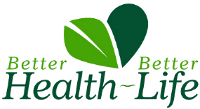 Shelley Wiart began Women Warriors to help Indigenous women really feel snug in a exercise setting. High impact cardio workouts like working could be onerous in your body. The affect can harm your joints. It may be tough to think about good low impression cardiovascular exercises that you can do inside. Be taught methods to get an important low influence cardio exercise at dwelling. Here at NW Ladies’s Health, we consider in being concerned in our community and serving to the place we can. If you do not have the cash to spare and would wish to do that on your own, you are able to do so with just a little bit of knowledge and a variety of persistence and commitment. There are different workout routines and movements that you can do to perform the aim. Men and women can generally do the identical abs training routines in an …
Shelley Wiart began Women Warriors to help Indigenous women really feel snug in a exercise setting. High impact cardio workouts like working could be onerous in your body. The affect can harm your joints. It may be tough to think about good low impression cardiovascular exercises that you can do inside. Be taught methods to get an important low influence cardio exercise at dwelling. Here at NW Ladies’s Health, we consider in being concerned in our community and serving to the place we can. If you do not have the cash to spare and would wish to do that on your own, you are able to do so with just a little bit of knowledge and a variety of persistence and commitment. There are different workout routines and movements that you can do to perform the aim. Men and women can generally do the identical abs training routines in an …
Author: Elizabeth
 Every lady wants to have a healthy child. However, adherence to train recommendation is especially low amongst those with Kind 2 diabetes, who are largely overweight or overweight, with lack of time being cited as one of the best obstacles to regular exercise. This new analysis means that a excessive depth exercise programme corresponding to CrossFit improves the flexibility of the physique to manage blood sugar ranges by lowering the quantity of insulin required. Importantly, these improvements appear to be much like the kind of change we might count on from more conventional exercise interventions, despite individuals spending significantly less time exercising than well being guidelines suggest. CrossFit subsequently affords a time-efficient exercise approach for individuals with Type 2 diabetes who wrestle to keep up each day exercise. Whereas few of those options existed in years past, today, several are among the most popular well being and health smartphone apps. …
Every lady wants to have a healthy child. However, adherence to train recommendation is especially low amongst those with Kind 2 diabetes, who are largely overweight or overweight, with lack of time being cited as one of the best obstacles to regular exercise. This new analysis means that a excessive depth exercise programme corresponding to CrossFit improves the flexibility of the physique to manage blood sugar ranges by lowering the quantity of insulin required. Importantly, these improvements appear to be much like the kind of change we might count on from more conventional exercise interventions, despite individuals spending significantly less time exercising than well being guidelines suggest. CrossFit subsequently affords a time-efficient exercise approach for individuals with Type 2 diabetes who wrestle to keep up each day exercise. Whereas few of those options existed in years past, today, several are among the most popular well being and health smartphone apps. …
 In in the present day’s article of quick muscle building, we can be speaking concerning the self defeating psychology of being a health club member. They kept monitor of training adherence and depth remotely by way of a coronary heart charge monitor that fed data by means of a cellular app. The researchers checked out three parameters of fitness: aerobic capability , stiffness of arteries, and physique composition (meaning how much muscle and fats that they had) during the six weeks of HIIT. Set targets , like training for a race or dropping 20 pounds. “A goals ought to be one thing you’ll be able to’t do proper now, however you already know is inside your reach,” Calabrese says. Give yourself mini-rewards along the best way: a new health magazine, these workout tights you have been eyeing, or a brand new pair of sneakers. What about gymnastics? Gymnastics and swimming …
In in the present day’s article of quick muscle building, we can be speaking concerning the self defeating psychology of being a health club member. They kept monitor of training adherence and depth remotely by way of a coronary heart charge monitor that fed data by means of a cellular app. The researchers checked out three parameters of fitness: aerobic capability , stiffness of arteries, and physique composition (meaning how much muscle and fats that they had) during the six weeks of HIIT. Set targets , like training for a race or dropping 20 pounds. “A goals ought to be one thing you’ll be able to’t do proper now, however you already know is inside your reach,” Calabrese says. Give yourself mini-rewards along the best way: a new health magazine, these workout tights you have been eyeing, or a brand new pair of sneakers. What about gymnastics? Gymnastics and swimming …
 Getok! Telunjuk Geledah Makeup Favorit Milik Fashion Blogger Amelia Bunjamin 112. Hiya, beauty infants. Hai, Sahabat Telunjuk.
Getok! Telunjuk Geledah Makeup Favorit Milik Fashion Blogger Amelia Bunjamin 112. Hiya, beauty infants. Hai, Sahabat Telunjuk.
Get the family 24/7 visiting hours. Catching disorientation early has a very different end result when performed by a member of the family who can be soothing and reassuring, and has the time and inclination to be so. This also allows the hospitalized person’s needs to be met more quickly (like a glass of water or assist to the toilet), whereas offering socialization and interaction.
The commonest free radicals attacking living tissue are reactive oxygen species (ROS)—or oxyradicals. They embrace the peroxyl, nitric oxide and superoxide-anion radicals plus singlet oxygen, peroxynitrite and hydrogen peroxide. Worst of all is the dangerous hydroxyl radical, formed by the mixture of the weaker superoxide radical with hydrogen peroxide. Rosmarinic acid neutralizes the superoxide-anion and thus makes a significant contribution to curbing oxidative injury within the physique.
Other …
 Sonia Kruger has introduced she’s launching her own dance-based mostly fitness and diet program, Strictly You , after individuals stored asking her how she bought her incredible figure. Might the inherently intensive nature of impediment racing as many rivals use their muscle groups in ways they may not have done so whilst training have potential to cause further increases in rhabdo cases? There must be a chance of this as subjecting a mildly educated particular person to miles of operating on a blisteringly scorching summers day with some very intensive components like rope climbs and lifts their physique will not be accustomed to may actually be quite a few threat elements for rhabdomyolysis. If your head’s spinning from all the weight-reduction plan dos and don’ts, you’re not alone. This time of the year seems to make everyone an expert on diet and weight reduction. With ideas raining from wise to …
Sonia Kruger has introduced she’s launching her own dance-based mostly fitness and diet program, Strictly You , after individuals stored asking her how she bought her incredible figure. Might the inherently intensive nature of impediment racing as many rivals use their muscle groups in ways they may not have done so whilst training have potential to cause further increases in rhabdo cases? There must be a chance of this as subjecting a mildly educated particular person to miles of operating on a blisteringly scorching summers day with some very intensive components like rope climbs and lifts their physique will not be accustomed to may actually be quite a few threat elements for rhabdomyolysis. If your head’s spinning from all the weight-reduction plan dos and don’ts, you’re not alone. This time of the year seems to make everyone an expert on diet and weight reduction. With ideas raining from wise to …